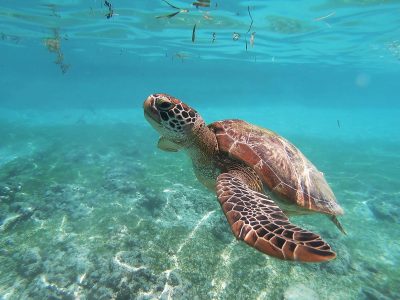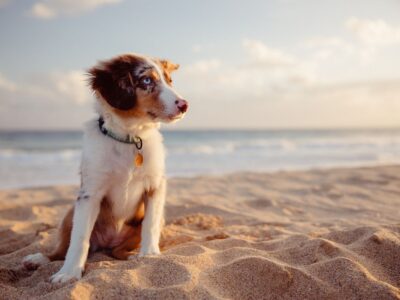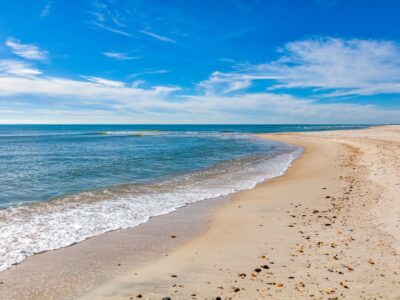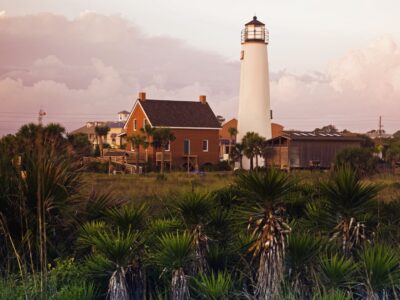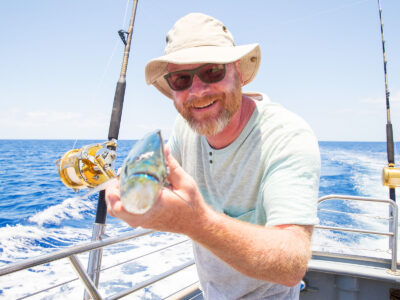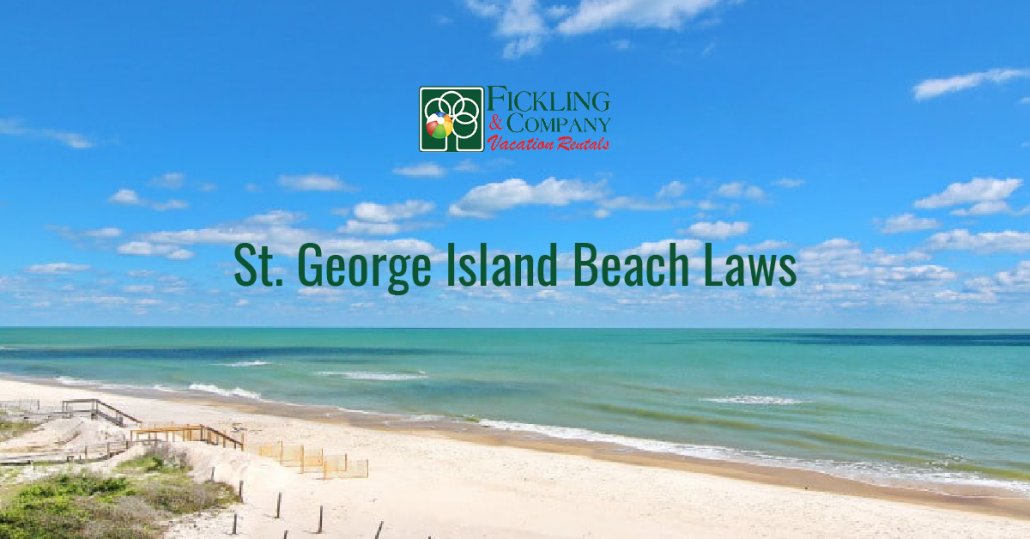
The Gulf beaches of Florida are some of the most remarkable in the world, where powder sand shores are kissed by crystal blue waters.
A sparkling gem on the crown of the Gulf Coast, St. George Island is the very definition of an unspoiled paradise. The pristine tranquility of the barrier island lures visitors to the Florida Panhandle in search of outdoor recreation, natural beauty, and a little R&R year after year.
Development restrictions and public regulations help to preserve the island landscapes and environment, but every visitor to SGI has a certain responsibility to contribute to the island’s care and natural state.
Leave No Trace
Franklin County enforces a “Leave No Trace” ordinance to ensure the preservation of the region’s beaches, wildlife, and natural environment. The ordinance prohibits leaving anything on the beach (beyond the dune line) overnight, including chairs, tents, canopies, umbrellas, and beach toys. Help to keep our sandscapes and shorelines clean and clear while protecting beach and marine wildlife by collecting all of your belongings at the end of your day, and properly disposing of all waste.
Pet Policies
The St. George Island beaches are among the most pet-friendly in Florida. The public beaches are easy to locate with ample opportunity to explore and play. Many vacation rentals offer direct beach access, and pet-friendly options in rental homes are not hard to find. The island is also home to the St. George Island Lighthouse and an assortment of shops and cafes that welcome well-behaved pets to fully indulge in the island lifestyle alongside their humans on a beach vacation of their own. Dogs of all sizes are welcome on both the beach and bay side of the island, and within the St. George Plantation, as long as they are leashed and cleaned up after. Access may be restricted in some areas of St. George Island State Park, so guests should brush up on park regulations prior to their visit.
Fireworks
Use of fireworks is prohibited in the Plantation and on the beach. In all other areas, legal use is determined by Florida law (Statute 791). Resulting debris from usage should be cleaned up and safely disposed of immediately. During sea turtle nesting season (May 1 – October 31) fireworks are discouraged, to help ensure the safety of nesting loggerhead turtles and their hatchlings.
Open Fires
Open fires and fire pits are not allowed in the Plantation. Campfires are allowed on the beach, but only at locations below the average high water line and away from all structures and vegetation on and beside the shore. Any resulting debris should be promptly and properly cleaned up. Building fires on the beach during sea turtle nesting season is strongly discourage to avoid harm and disruption of nesting turtles along the Gulf of Mexico.
Boating
Water vessels may not be launched within the St. George Plantation or off the island beaches. Public boat ramps are located at the St. George Island Bridge and within the State Park on the island’s east end, as well as at Eastpoint and Apalachicola on the mainland. The bridge ramp offers parking on-site and accommodation for boats of various sizes. The unpaved ramps in the State Park provide access to Apalachicola Bay for smaller vessels.
Beach Conditions
Franklin County incorporates the use of a color-coded flag system to advise visitors of current sea conditions and hazards. Observe flag colors and be familiar with their indications – keeping in mind that conditions have the potential to change with little notice.
Golf Carts
A preferred method of island transportation, golf carts are allowed on all St. George Island county roads with the exception of Gulf Beach Drive and Franklin Boulevard. Golf carts are not allowed in St. George Plantation.
Private Property
Please observe private property notices as beachfront homes are privately owned residences. This includes designated private boardwalks and docks.


